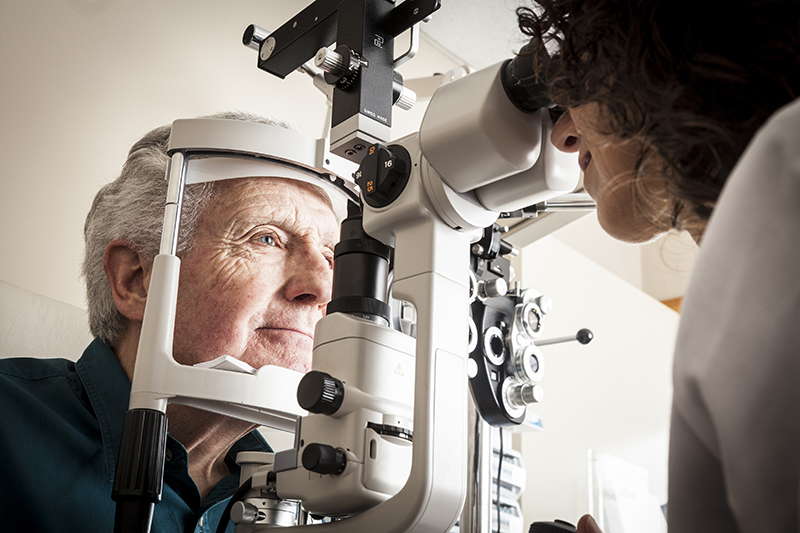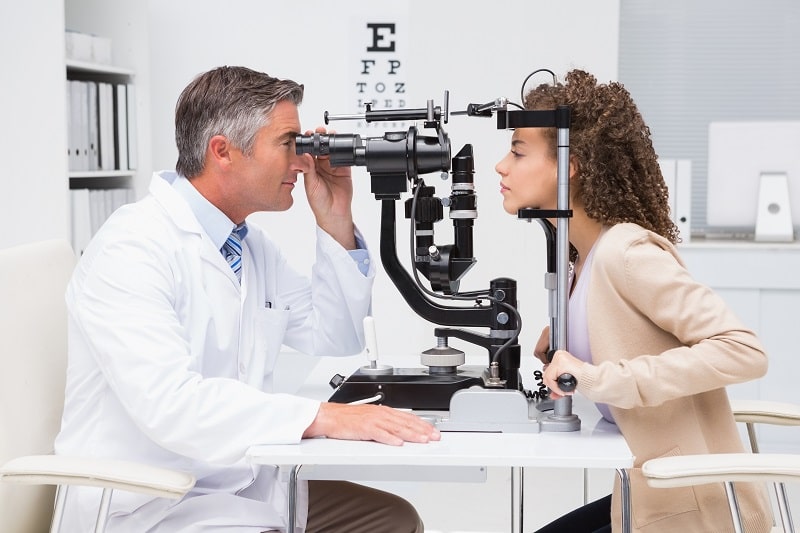Are you passionate about helping people and making their life beautiful? Do you have an interest in the Medical field? Are you fascinated by Ophthalmology? Then a career as an Orthoptist is the right option for you.
Explore this blog to know everything you need to know about Orthoptists like who they are, their duties, education and career path with a pay package.
Who are Orthoptists?
Orthoptists are advanced healthcare providers in the ophthalmic field specializing in treating eye disorders and specific eye conditions. They diagnose and treat visual system disorders like binocular vision and impairments in eye movements.
They also treat adults with eye muscle or nerve weakness due to some neurological problem resulting in double vision problems. These problems can be due to diabetes, stroke, acquired brain injury, Parkinson disease etc.
Patient care is the crucial part of being an Orthoptist. They work with patients of all ages but mostly their patients are children. They work closely with Ophthalmologists, Ophthalmic Assistants, Nurses and other professionals of the healthcare team.

Responsibilities
The following are some of the responsibilities of an Orthoptist:
- Maintain a complete record of patient’s case histories.
- Performing patient’s examinations and undertaking tests for vision evaluation and diagnosing any eye issues or eye movement disorders.
- Diagnosing and detecting various eye problems like glaucoma, amblyopia (lazy eye), diplopia, genetic disorders of the eyes and other eye problems.
- Helping the patients and their families in getting aware of their eye problems and their treatment plans and actions.
- Use specialized equipment and treating vision problems of patients with devices like patches and specialist glasses.
- Be abreast of the latest techniques and developments in Orthoptics.
- Assessment of babies and small children vision including kids with special needs.
- Formulate treatment plan and management of medicines.
- Work closely with Ophthalmologists for surgical planning for specific eye movement disorders.
- Suggesting treatments like contact lenses, low vision aids, eye exercises or eye patches.
- Carry out rehabilitation programs for the visually impaired.
- Advising the patients on visual health issues like contact lens care, elderly vision care, and corrective optics along with occupational and industrial eye safety.
Required Skills
A successful Orthoptist should possess the following skillset.
- Excellent communication and interpersonal skills to explain the eye conditions and the treatment plan to the patients.
- Good teamwork skills to build a cordial relationship with colleagues and other health care professionals you need to work with.
- Problem-solving skills and ability to work under pressure.
- Ability to work independently and manage your workload and appointments.
- IT and computer literacy.
- Excellent observational skills and detail-oriented.
- Patience along with flexibility and adaptability.
Education and Eligibility
- Completion of 10+2 in Science stream from a recognized board.
- Pursue bachelor in biology, social sciences or related field.
- To become an Orthoptist, complete a two years fellowship training program in Orthoptics accredited certification body.

Knowledge Areas
An Orthoptist should possess knowledge and understanding of the following subject areas in his profession.
- Medicine and Dentistry.
- Proficiency in English.
- Customer and Personal Service.
- Biology
- Psychology
- Curriculum Design and Training.
- Mathematics
- Therapy and Counseling.
Foreign universities to study Orthoptics
The following are some of the universities in abroad that an aspirant can enroll into Orthoptics courses:
- Liverpool University.
- Glasgow Caledonian University.
- Sheffield University.
Typical employers of Orthoptics
The following are the organizations that employ Orthoptics:
- The National Healthcare Services.
- Eye Hospitals.
- Eye departments in hospitals.
- Community Orthoptics Services (providing vision screening in schools and health clinics).
- University Departments.
- Private practices.

Specialization in Orthoptics
The following are some of the specialized roles and advancements in the field of Orthoptics:
- Cataracts
- Glaucoma
- Low Vision And Nystagmus
- Macular Degeneration
- Medical Retina
- Neuro-Ophthalmology
- Paediatric Ophthalmology
- Strabismus Management (Pre/Post-Operative And Assistant In Theatre)
- Stroke
- Uveitis
Career Advancement
As you gain experience and skills as an Orthoptist, you can assume leadership and management roles through your involvement in:
- Mentoring
- Operational Management
- Project Management
- Quality Improvement
- Commissioning
- Digital Leadership
- Sponsored Secondments.
Salary and Job Outlook
The average median salary of an Orthoptist is $82,400 in the U.S. This pay package is dependent on many factors like position, employer, expertise level and work location.
According to the US Bureau of Labor Statistics, the employment growth of Orthoptists is projected to grow at a rate of 4% from 2019 to 2029.
The role of an Orthoptist is growing and at a rate faster than the average growth rate of other occupations. It is a new field and is gaining popularity as the demand for healthcare services is growing.

– Samiya Firdous






